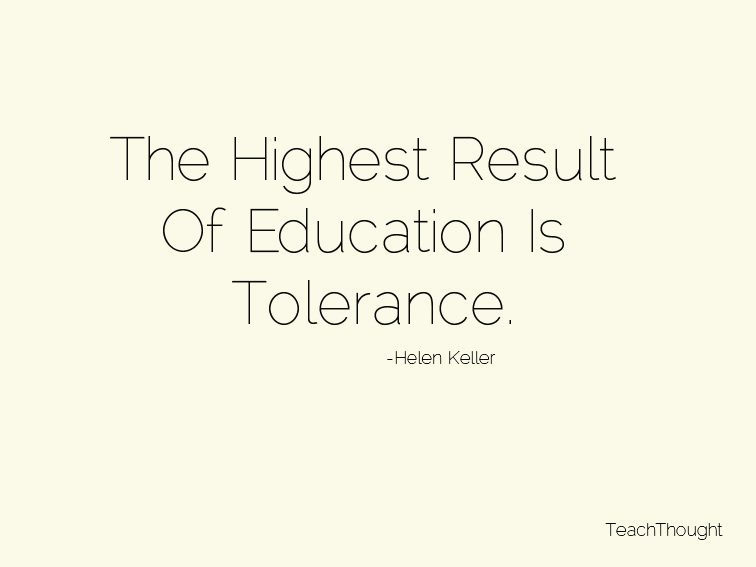
What Is The Relationship Between Education And Tolerance?
by Terry Heick
It makes sense that all learning should result in personal change.
Pushed further, all learning should then result in both personal and social change (being that society is simply a collection of individuals and their habits).
These are two of the measuring sticks I’ve always resorted to, whether surveying ed policy nationally and globally, or looking out over students in a classroom: Are they changing, and how? And how do I know?
In Critical Thinking Is A Mindset, I said “Critical thinking is certainly a ‘skill’ but when possessed as a mindset–a playful and humble willingness–it shifts from a labor to an art. It asks, ‘Is this true? By what standard? Who would disagree and why? What is the history of this issue or topic? What am I missing? What kinds of knowledge am I missing to understand this more closely and how can I acquire them?”
So I found Helen Keller’s wisdom in the above graphic perfectly put. As you–and your students–seek enlightenment, tolerance isn’t just a product, but among the highest products. The more you know, the more you find out that you don’t know. The more you experience, the more you see what you’re missing out on. And the more you seek to be right, the more you may find that there is no ‘right,’ but rather constantly changing perspectives in a dynamic intellectual ecology.
Which means that the full measure of education may be the ability not simply to tolerate, but accept their own limits, and the limits of those around them.
That is, to tolerate our own humanity.
And that requires humility.
The Highest Result Of Education Is Tolerance

